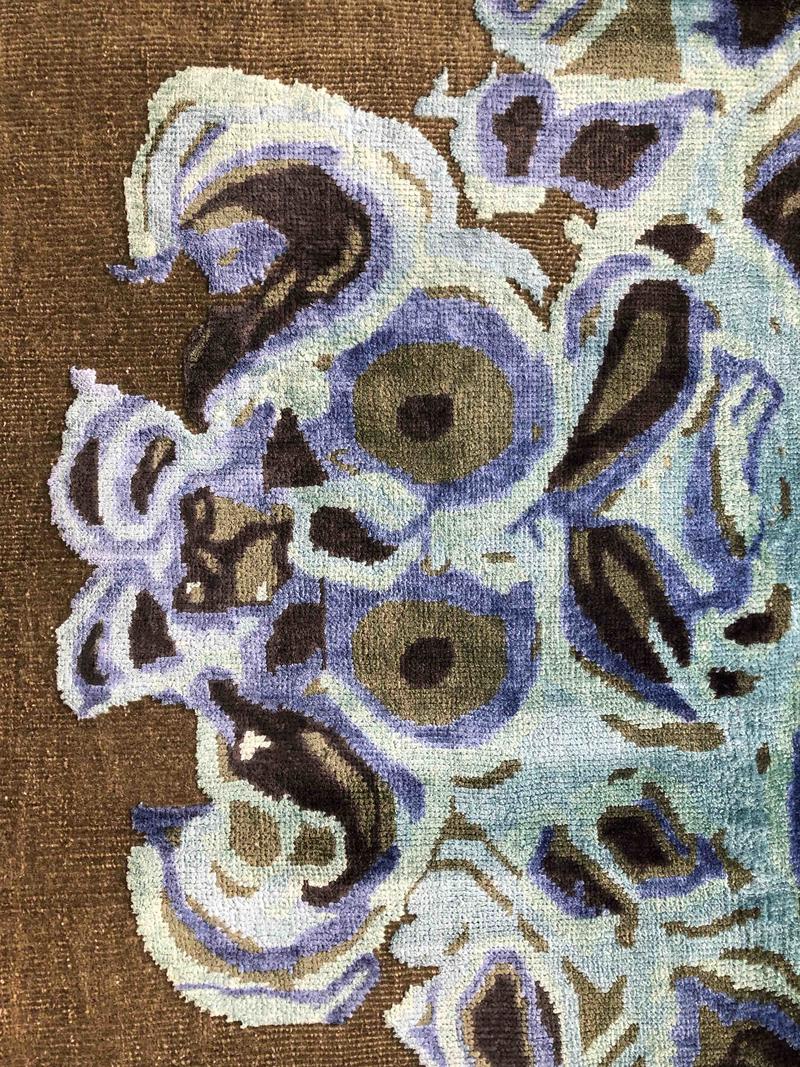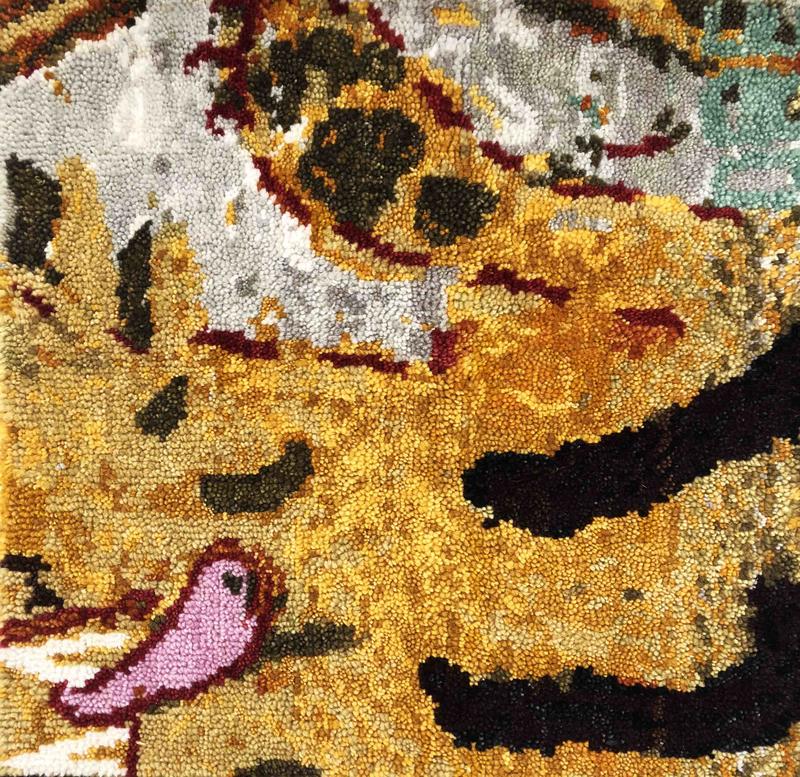World Wildlife Fund has partnered with Sotheby’s to create Tomorrow’s Tigers, a new fundraising project that features carpets. The project was created in support of the TX2 goal, which is a global commitment to double the number of tigers in the wild by 2022. All the artwork will be on show at the auction house in London in January of next year.

Inspired by the Tibetan tiger rug and tigers in the wild, each artist has created a unique art rug, produced by Christopher Farr artisans in Mirzapur, India, using natural wools and silks, hand-dyed in small quantities. Tomorrow’s Tigers has been devised and curated by the curatorial team Artwise. The rugs will be shown with a selection of 19th-century Tibetan tiger rugs—11 of the 164 in existence.
The rugs are each made in a limited edition of 1o, designed by artists including Francesco Clemente, Bernard Frize, Ellen Gallagher, Gary Hume, Reena Saini Kallat, Anish Kapoor, Maya Lin, Harland Miller, Raqib Shaw, Kiki Smith and Rose Wylie.
“Apart from liking tigers and wanting to be part of any initiative that helps conserve them, we were very attracted by the challenge of working with a diverse group of artists, most of which we have not worked with before,” Matthew Bourne, director of Christopher Farr, told Business of Home. “It helps keep us fresh as producers and is always inspiring. We also have the intent to promote handmade textiles and elevate the craft into the realm of art.”
“The rug with Reena Kallat definitely took us to new areas in terms of technique,” Bourne said. “We have not had to find ways of incorporating barbed wire into rugs before.” For all the rugs, the wool was spun by hand, and natural and AZO-free dyes were used.
Prices for the rugs start at £10,000 (about $13,000). Profits will go directly to support tiger conservation in the 13 tiger range countries of Bangladesh, Bhutan, Cambodia, China, India, Indonesia, Laos, Malaysia, Myanmar, Nepal, Russia, Thailand and Vietnam.

TX2 is a flagship initiative for WWF; all the proceeds will go toward tiger conservation work, including training and supporting rangers on the ground and tackling the illegal wildlife trade, divided among programs in each of the 13 countries. WWF aims to generate £1 million (about $1.3 million).




























